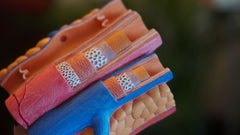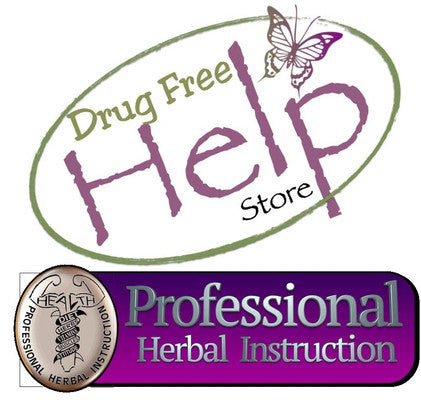8 Artery-Smart Supplements
Posted by kim-erickson on

Do You Have Poor Circulation?
Some of the most common signs of sluggish circulation include:
- Numbness in hands or feet
- Muscle cramping
- Cold hands and feet
- Pain your legs when walking
- Swelling in your legs and ankles
- Headaches and dizziness
- Brain fog
- Slow or delayed wound healing
- Low sex drive
- Fatigue
- Shortness of breath
8 Best Supplements for Circulation
1. Omega-7 Fatty Acids
Palmitoleic acid is a purified and concentrated form of one specific omega-7. Initial human studies have found that palmitoleic acid helps lower unhealthy triglycerides, reduce harmful LDL cholesterol, and raise beneficial HDL cholesterol-all of which benefits circulation and heart health. Sea buckthorn oil is one of the richest sources of omega-7 fats.
2. Coenzyme Q10
( CoQ10 ) supports circulation by inhibiting the formation of blood clots. Findings in The Journal of Nutritional Biochemistry show that CoQ10 protects arteries by preventing the oxidation of LDL cholesterol. Unfortunately, the body's natural stores of CoQ10 decline with age (especially after age 40), but taking supplements helps restore levels. Statin drugs deplete CoQ10 further, so taking a supplement is important if you are on cholesterol medication. Use 100–200 mg daily. For optimal absorption, use the Ubiquinol form of CoQ10 (instead of ubiquinone).
3. Fish Oil
Fish oil protects blood vessels thanks to two omega-3 fats—docosahexaenoic acid (DHA) and eicosapentaenoic acid (EPA). Studies show that they help lower high blood pressure and triglyceride levels. They also modulate mechanisms of atherosclerosis, including inflammation, blood clotting, and platelet aggregation. Fish oils have also been shown to help treat depression. Look for a product that is third-party test for purity. For best results, use a formula that contains at least 1,000 mg total of omega-3s.
4. L-arginine
L-arginine is an artery-protecting amino acid that boosts nitric oxide levels. This causes blood vessels to relax, permitting improved blood flow. As you get older, you may need more of this nutrient than your body and diet can supply. Food sources include turkey, chicken, pork, pumpkin seeds, and soybeans. Fortunately, you can boost your intake of L-arginine with supplements. While safe under most circumstances, it's wise to avoid L-arginine if you suffer from low blood pressure. A standard dosage for L-arginine is 500–1,000 mg daily.
You may want to consider combining L-arginine with Aged Garlic Extract (AGE): A double-blind, placebo-controlled trial found that AGE, when combined with L-arginine and certain B vitamins, can reduce coronary artery calcification. Researchers used Kyolic Formula 108 in the study, which was conducted at the UCLA Biomedical Research Institute.
5. Nattokinase
Nattokinase is an enzyme in fermented soybeans that helps reduce blood pressure. According to research in Nutrition Research, nattokinase dissolves excess fibrin in blood vessels, which improves circulation. It can also reduce LDL cholesterol and increase HDL cholesterol; reduce blood viscosity; and improve blood flow. A word of caution: Since nattokinase can increase bleeding tendencies, talk with your doctor if you take warfarin (Coumadin) or an antiplatelet drug such as aspirin or Plavix. The dosage for nattokinase supplements is often listed in “fibrinolytic units,” or FUs. A standard dose is 2,000 FUs or 100 mg.
6. Niacin
Niacin is a B vitamin best known for its ability to raise HDL (“good”) cholesterol levels. But niacin is also a valuable tool to dilate blood vessels and enhance microcirculation. This is indicated by the well-known "flush" that can occur after taking a niacin supplement. This flush can create an uncomfortable tingling sensation and a feeling of warmth. You can help prevent this reaction by taking niacin at bedtime with a dose of stinging nettles (250–275 mg). It's also wise to work with your doctor if you opt to take this supplement, since it may affect liver function at therapeutic doses. A standard dosage ranges from 100 to 500 mg. Avoid the “no-flush” form niacin, as it does not work as well as regular niacin for cardiovascular health.
7. Resveratrol
Resveratrol , a compound that is found in red wine and red grapes, affects the health of the cells lining blood vessels. It also triggers the release of nitric oxide, which plays a key role in the relaxation of blood vessels. If that weren't enough, resveratrol helps lower LDL cholesterol and prevents blood platelets from clumping together. This suggests that resveratrol can improve vascular function. Use 200–500 mg of trans resveratrol (the easiest-to-absorb form). For added antioxidant protection, look for formulas that combine resveratrol with grape seed extract.
8. Systemic Enzymes
Systemic enzymes are similar to digestive enzymes with one big difference—they work within the bloodstream rather than the digestive system. Systemic enzymes, such as protease and serrapeptase, support overall health, but they are best known for their anti-inflammatory and circulation-boosting powers. They can also help thin excess mucus and support the breakdown of toxins, allergens, and unhealthy levels of fibrin in the blood (a substance related to clotting). Systemic enzymes are best taken on an empty stomach. Use in place of NSAIDs such as ibuprofen for pain relief. Follow dosage guidelines for best results.
Written by kim-erickson for Better Nutrition and legally licensed through the Matcha publisher network. Please direct all licensing questions to legal@getmatcha.com.
